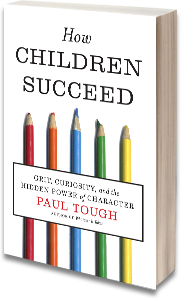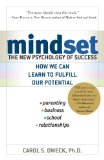The Common Core does a pretty good job of laying out some key cognitive skills students need to have to be ready for a career or college. Yes, for you CCSS doubters out there, I said it — I think the standards are good.
Granted, I like boiling their goodness down and distilling it into a more potent greatness (if you're new, refer to the focused, non-freaked out approach we talk about here in the Teaching the Core community).
But here's the bold claim I'll spend this post backing up: if you aim at the Common Core goals only by doing increased text complexity, close reading, arguing, mandatory talking, and writing like crazy, you or a large amount of your students will begin to hate your/their life.
Before you throw your computer in frustration, hear me out.

News flash: Common Core goals are hard
Let's not lie: even a boiled down, non-freaked out approach to the Common Core assaults students with challenge — that's one of the major reasons I like the Common Core. For too long, the demands of college/career have increased while the demands of K-12 schooling have decreased. Mediocrity has become the norm or, in many cases, the ideal, with kids being given cookies or prizes for doing things like… um, learning. Or working hard.
The result? More Americans are living frustrated, non-flourishing lives.
But there's not an easy solution here; our society tends to de-value hard work, and yet attaining the goals that the Common Core lays out is pretty darn hard. I'm not going to sit here and pretend my freshmen students will naturally love close reading a piece from The New York Times or comparing the role of masculinity in Things Fall Apart and contemporary society. These are intense cognitive tasks.
And when most of my students come to me, their idea of fun usually isn't an intense cognitive task.
I'm guessing yours aren't much different.
And this isn't about blame, either. We all own a piece of the responsibility pie — us as teachers (the whole “do your work and get a prize” thing), sure, but even more so us as parents (over-protecting our children, for example) or even us as a culture that spends more time talking about Miley Cyrus twerking than an impending US entry into the Syrian conflict. (Facepalm.)
But I submit that blaming folks is pretty pointless at this point — so that's not what this is about.
It's about reality. And the reality is that if the goals laid out in the Common Core are to be met while retaining joy in our classrooms, we had better figure out how to teach our students not just how to deal with a complex text cognitively, but also how to develop the chops for dealing with difficulty, period.
This can be done through focusing on a pair of non-cognitive, totally teachable, totally learnable skills.
What in the Johnny Johnson is a non-cognitive skill?
Non-cognitive skills are those things that have nothing to do with IQ but are, in fact, pretty darn good at predicting whether or not you'll be successful. By calling them skills, we're saying that, just like dribbling a soccer ball or writing your name, they can be intentionally taught and intentionally practiced and intentionally mastered. They are the topic of Paul Tough's breakthrough book How Children Succeed. In HCS, Tough shares the work of schools and social workers and students and researchers and economists and psychologists, a body of studies that strongly suggests the USA's obsession with measuring cognitive skill through standardized tests is founded on a faulty presupposition that success predominantly hinges on intelligence.
In How Children Succeed, Tough shares the work of folks who are using science to study character, and he shows examples of how these findings are literally transforming the lives of young people.
Read the book, but for the sake of this post, just know that:
- non-cognitive skills are learnable habits, not in-born traits;
- the two non-cognitive skills that seem to get the biggest bang for the buck are grit and self-control.
Props where they're due

Before I move into how three colleagues and I have gone about the process of getting the majority of our students to deeply internalize the value of grit and self-control over the past two years, I've first got to share some deep gratitude to a few folks who got us to where we are today:
- I teach in a Freshmen/Sophomore “school within a school,” and it's my privilege to do this alongside Erica Beaton (history/English for the sophomores), Steve Vree (science for both grades), and Brooke Holt (math for both grades). If it weren't for these three and their willingness to invest the time and energy necessary to get character strengths off the ground, we'd still be grumbling at the end of the day trying to figure out how to get even half of our kids to turn things in. These three bring all they've got to their job, and they've each had a hand in developing and strengthening our approach to teaching character strengths to our students.
- If it weren't for Paul Tough's article in the New York Times (which is a great preview of his book), I would never have brought the idea up to my colleagues. This is the article that first got me thinking about an organized, focused method for teaching non-cognitive skills.
- Finally, we owe a debt to KIPP schools for their character strengths list and their approach. Their work with selecting and teaching highly-predictive character strengths serves as our foundation.
Start by focusing on the two biggies

If you didn't click on the KIPP link in the preceding section, you didn't see their list of seven highly predictive character strengths (see above image). This is the list we use in our academy, too.
But this post is focused only on grit and self-control because:
- I try to always boil things down to the absolute essentials for the Teaching the Core community, and
- If I had to pick just two strengths for my entire district to teach, model, and infuse, K-12, I would pick grit and self-control. That's not to say that the other five character strengths aren't important. After all, in the Academy we still teach them, model them, and infuse them relentlessly because they all are highly predictive of success. If I lived in the perfect world, I'd have all seven character strengths taught/infused across an entire district, and I'd maybe encourage each teacher to pick an additional strength/virtue of their own (for example, Mr. Smith might add Integrity, while Mrs. Doe might choose Humility).
But again, this is about what's most critical, for dominating the Common Core in particular and for teaching/life in general, so grit and self-control are it.
Specifically, what do grit and self-control look like?
From what we've observed in the Academy, it's not enough to just teach vaguely about a character strength; we need to teach what, specifically, each strength looks like. So, once again, we borrow from KIPP.

A student with grit, specifically, will:
- finish whatever he or she begins;
- try very hard even after experiencing failure;
- work independently with focus.
Self-control is a little bigger, so we, following KIPP's lead, break its indicators into two categories: work-related and interpersonal.
A student with work-related self-control will:
- come to class prepared;
- pay attention and resists distractions;
- remember and follow directions;
- get to work right away rather than procrastinating.
And a student with interpersonal self-control will:
- remain calm even when criticized or otherwise provoked;
- allow others to speak without interruption;
- be polite to adults and peers;
- keep temper in check.
Now, let's bring it back to the Common Core; here's why grit and self-control are essential to everything else we've been talking about in the non-freaked out approach:
- When I give a complex text to the whole class, my below-level readers need to know that what I'm expecting is a gritty reading of the text. They may not pull out as much as their at- or above-level peers, but I expect them to focus for the duration of the reading and to finish it.
- When we're doing a close reading of an article and I model how to summarize a dense paragraph, I tell students I want to see them use self-control to remember what I taught them and put it into practice right away.
- When we're doing an in-class debate or discussion, I expect students to show politeness to people with opposing viewpoints and to keep their emotions out of the debate — this is self-control. I also want them to stay focused on the flow of the debate even after they've made their required speech — this is grit.
- That dirty p-word at the end of work-related self-control — procrastination — is a huge monster many of my students need to intentionally grapple with during their freshman year; self-control allows us to talk about that issue through the lens of it being a barrier to one of the most highly predictive character strengths known to mankind.
These are just some of the ways that we use grit and self-control in our instruction every day.
Okay, I'm interested in using character strengths in my classroom/school — how do I do it?
First of all, commit to seeing character strengths through. We first started them in the spring of 2012, and we're just starting to see some decent payoff. However, we all are yet to be fully satisfied; we're still trying to improve our approach.
But with that caveat covered, here's how we do it:
1. TEACH THE STRENGTHS EXPLICITLY
As a science/math/history/English team, we give each strength a week during the first trimester of school. During that week, in at least one of our classes, students will receive the following opportunities for beginning to learn and internalize the strengths. Please note that this is merely an introduction to the strengths, and Part 2 (below) is way more powerful, in my opinion, than this explicit instruction segment. Also, this approach is taken straight from KIPP — click here for more info.
- Name the strength: We explicitly teach the strengths and their indicators (the indicators being the bullet points mentioned above).
- Find examples of the strength: We introduce kids to real-world and fictional examples that display the various character strengths, and we ask kids to share these examples as well.
- Process the strength: We lead the kids in quickwriting about where they are with a strength or its specific indicators and how they intend to work on improving.
2. RELENTLESSLY INFUSE THE STRENGTHS INTO YOUR CLASSROOM

The biggest reason our kids are starting to latch onto grit and self-control is probably because they hear them mentioned hundreds of times per week between our four classes. It's become part of the fabric of our classrooms.
This happens because, first of all, each of us teachers believes in the strengths. We've all read How Children Succeed (and we're currently reading Mindset, which is freaking amazing). We've all read KIPP's materials on character. We've watched Angela Duckworth's grit talk at TEDxBlue. Basically, we've pounded this stuff into our own heads and hearts and we believe that, if our kids have grit and self-control, we're going to like our jobs more and the kids are going to like their lives more.
Secondly, we call our kids out on being gritty and self-controlled. While this is sometimes formal (e.g., we have a trimesterly awards ceremony in which accolades for academics and character are given out), I think it's most powerful not in ceremonies, but in the day-in, day-out comments like, “Susan, I know you were exhausted today, and I was impressed by your gritty determination to stay awake,” or, “Devin, I know Things Fall Apart drove you crazy at first, and I can't tell you how floored I was when you re-started the book to get a better grasp of it — that's the kind of grit that will take you far.” The key with this kind of praise is making it specific and descriptive.
Thirdly, we let our kids feel the intrinsic rewards that come with growing these non-cognitive skills. We point out how their self-control is decreasing their anxiety and increasing the joy they're getting out of school.
It's probably that last one — letting them feel it — that results in them leaving our academy and, months (hopefully years) later, still speaking about their desire to be people of grit and self-control.
You can do this in your classroom
I know, I'm spoiled: I teach with three other people who were all willing to jump down the rabbit hole of character strengths. It was a lot of work at first — learning them, planning how to roll them out, remembering to infuse them, reading the research — and they were willing to do it. They are an insane group of humans, clearly.
But if you don't have such a luxury, the key with impacting students and colleagues is to simply get started in your own room. I am NOT advocating that you completely disregard your school's curriculum and policies — seven years into my career, I've come to realize that such behavior is usually 1) ineffective, 2) alienating, and 3) foolishly prideful. (Trust a guy who's been there.)
Frankly, infusing character in your room can be done right alongside any given curriculum, as long as it's challenging enough. (And if it's not challenging enough, teach the curriculum and add rigor on top of it). Eventually, if you commit to learning and infusing this stuff into your own life and your classroom, people will start asking you why your classroom pumps out more than its fair share of hard-working, resilient young people.
And that's when it will spread.
Bringing it back to the Common Core
At the end of the day, remember: the Common Core is a set of difficult goals, and difficult is awesome. Difficult is what we want. Difficult is what our students need.
But our students also need to know how to deal with difficulty — not only how to deal with a difficult text, but how to deal with difficulty itself. Grit and self-control aren't the only way to teach them this but, in my opinion, they are the easiest, most straightforward, least complicated way.
So naturally, that's why we're talking about them here.
What do you think? Do grit and self-control make sense? Does the approach to teaching them, outlined above, seem workable in your setting? Please share — your comments motivate me!
Deborah Owen says
Dave, a resounding YES!!! The CC is not easy, either for students or for staff. They have to be willing to work hard, and they have to be willing to stick with something that is hard work. They don’t like to do that. Let’s face it, often neither do adults. But we have the benefit of time and experience to see that hard work pays off. Kids don’t have that perspective yet. Good for you for teaching them these all-important skills.
davestuartjr says
Deb, you are right–this is challenging for students because they lack the perspective we have as adults. I often cite research with the students, but even then, students sometimes lack a respect for statistically valid findings! But I love it; the challenge is exciting and keeps us on our toes 🙂 Thanks for connecting Deb!
CarrieMatsuo says
Excellent article. Every parent should read this. Love your work.
davestuartjr says
Carrie, thanks for the shout out! I’m grateful for it 🙂
Erica Beaton says
A little late, but I’m gonna say, “Aww shucks” anyway. Thanks, D. You’re the best. Note that gratitude. Yep, it’s indicative of success. 😉
davestuartjr says
You know it E-money. I can see you’ve got your gameface on.
Pat Foster says
Thank you for posting this. If you do not mind, I plan to post the basic principles on my websites for students and refer to them regularly.
Thank you again,
Pat
davestuartjr says
Pat, thanks for the appreciation! I would be glad to see these concepts spread around the nation — they work. And the ideas totally aren’t mine — I got them from Paul Tough and KIPP. Referring to them regularly is the key!
Heidi Bonnema says
Here I go…If this works, I’ll buy you dinner. I’m glad to have you in my corner and on my team! Thanks Dave!
davestuartjr says
Heidi, keep me posted! Remember, it took us a year to get it down. But with every story (like sisu) that you share, you’re planting some awesome seeds. Super pumped to have YOU on my team!
Mary Clark says
I saved this until I had time to read, not just scan (and that took a month!) I just love this, Dave! You and the teachers you work with are awesome! I am sharing this with our teachers. I think this would be so much more useful than “bullying awareness” or the plethora of other days we seem to random throw onto our calendars. A unified approach like this would go a long way to helping students develop such critical life skills.
Mary Clark says
Randomly throw!! Time to get those new computer glasses:)
davestuartjr says
Mary, you’re right — in many ways, a school-wide emphasis on a focus, explicit set of character strengths like those mentioned above would eliminate the need for “bullying awareness” days and the like. I think you and I think alike — a focused approach to mega-powerful things makes more sense than a scattered approach to everything!
Mike White says
Here at the beginning of the second semester in middle grades at SeA in NC, here is the perfect time to begin infusing my lessons with explicit modeling and recognizing of grit and self-control. Thank you!!!
davestuartjr says
Mike, best to you there in NC. Cheers, good sir!